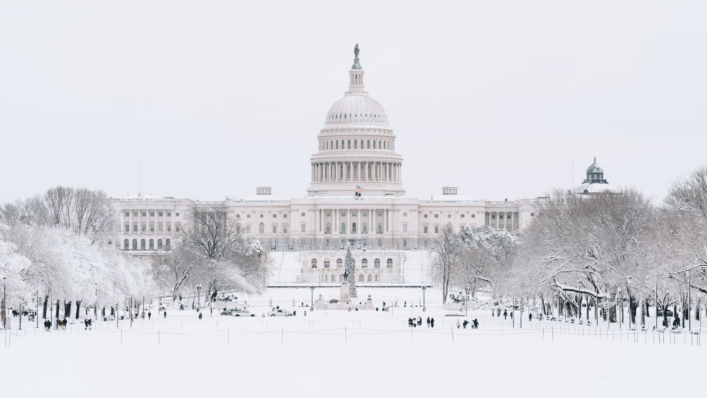- PageViews

Jan 29, 2025
Between the U.S. presidential inauguration, World Economic Forum, and the ever-evolving geopolitical landscape, communicators are struggling to keep up.
January has been a month of stark contrasts. In Washington, D.C., Donald Trump was sworn in as the 47th president of the United States, and swiftly began delivering on his campaign promises to enact economic protectionism and reverse climate policies. Simultaneously, 4,000 miles away, business and government leaders from around the world gathered at the 2025 World Economic Forum in Davos, with stated goals of promoting global trade, cooperation, and climate action.
This juxtaposition represents a larger issue for corporate communicators. Climate and trade policy in the U.S. could soon be pointedly different, and it is fueling anxiety about broader global disorder.Copy link

Prior to Trump’s inauguration, Page hosted conversations about what businesses and communicators can do to prepare for the new administration. Since he has taken office, many of the takeaways from those conversations have proven correct.
One takeaway worth calling out: as political strategist Bruce Mehlman mentioned in a recent call, businesses that engage with politicians will need to be much more nuanced in the new environment.
“There's a way to show up noisily, and then there's a way to show up where you meet the people who matter. You can be quiet about it and focus on the things where you're advancing the things they care about. You're employing people in their district. Building things that they support, whether it's the national defense or energy infrastructure … whatever it may be. You want to make friends before you need friends.”

Page had an expanded presence at Davos this year, hosting several panels and receptions at the gathering. Most notably, we released new research conducted in partnership with the Harris Poll, the 2025 Confidence in Business index. The research identifies gaps in the public's confidence in business on a range of societal issues, and recommends ways to strengthen public trust.
The theme at Davos was “Collaboration for the Intelligent Age”; attendees discussed topics such as safeguarding the planet, rebuilding trust, and investing in people, to name a few. For many people, the approaches to addressing these topics can cause debate and polarization. Our joint research with maslansky+partners, The Business Case for Climate and DEI, offers guidance on how leaders might communicate and act on these issues by prioritizing their business impact while attempting to avoid the polarizing effects of commonly used acronyms like ESG and DEI.

Organizations are grappling with whether and how to deliver on previously-made commitments by one set of stakeholders, as they consider the pressure from others. The disorder felt across the globe will likely intensify, as these conflicting expectations manifest in new ways.
For communicators, now is the time to lean into your corporate purpose. Aligning each directive and initiative with your purpose is the best way to address conflicting expectations and to avoid backlash from individuals looking to paint a target on your organization. Carol Cone, CEO of Carol Cone on Purpose, recently contributed a blog post that dives deep into how organizations can best leverage their purpose in this complex environment.